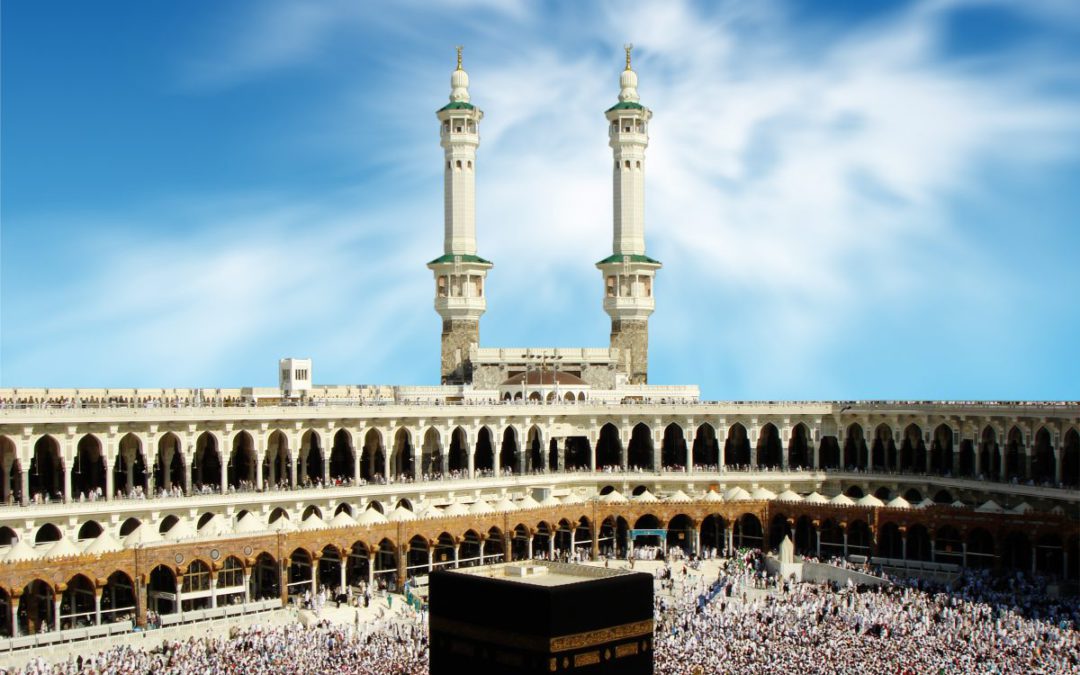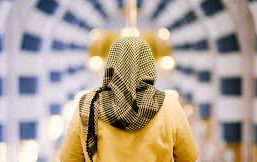Gender relations and roles are a constant focus of discussion and debate within the Muslim community. Occasionally, and increasingly, the debates are degenerating into conflicts. Although I believe, the community is maturing and my fervent hope is that the conflictual period in gender relations within the community is cresting, part of me feels this hope is just that – hope.
It is important to realize that a considerable feeling of inequity does exist on the part of many Muslim women. In some communities, women are excluded from participating in the decision making process; in others they are excluded even from the mosque itself. Exclusion from the decision making process happens both intentionally and unintentionally. For example, even in communities where the board or other formal leadership structure has female representation, decision-making still happens in a largely informal way. Discussions take place in the prayer halls, in mosque hallways, at Tim Horton’s, in gyms (yes Muslims occasionally exercise) and elsewhere. People congregate around the Imams after prayers, in social gatherings and after lectures…etc. The drive that precedes certain decisions rarely happen in formal town hall settings where broad discussion can take place and men and women have equal chances to participate. This is not entirely unique to the Muslim community and has long been a sore spot for women seeking to establish their careers where the golf course, the country club or the gym is a place where connections are established and relationships developed.
Segregation within the prayer space can, in many situations, serve to perpetuate that exclusion from decision-making. As noted above, in many communities the after-prayer socialization and discussion (which takes place in the prayer hall) occurs in the absence of women, and yet it is these discussions that set the tone for decision making within the community. Many individuals who have served on boards of community organizations and mosques are not foreign to the experience of arriving at a formal board meeting to find that the discussions have already taken place and the decisions already made.
This tradition of informal decision making does not only exclude women – because they are absent from the places in which such discussions take place – it also excludes communities/individuals who are not part of that social construct. Those outside the circle of social interaction are essentially blocked from participating effectively. For Muslim women, as for others so excluded, this is especially painful because it reflects a minority-within-a-minority exclusion.
Finally, another significant cause of this feeling of inequity on the part of the Muslim women is the reaction of Muslim men to these exclusionary practices. It is not unfair to say that the majority of Muslim men do not understand the deep-seated feelings of inequity that Muslim women experience, let alone empathize with their fellow Muslims. Only a minority understands this as a community issue, rather than just a “women’s issue”.
When Muslim women voice their concerns, one of the most common reactions on the part of men is one that effectively delegitimizes women’s concerns. Women are either told (or thought) to be “exaggerating” the situation or they are told that they are falling into the trap of “Western Feminism”. Effectively, Muslim women are being told that they are ignorant of Islamic rulings and customs; that they are losing their Islamic identity or that they have ‘sold out’ to a non-Islamic frame of reference. In the eyes of many Muslim women, this adds insult to injury. The perception on the part of many Muslim women is, of course, the complete opposite: By excluding women from the community’s important affairs, it is the men who are betraying Islamic principles. Yet, in addition to betraying these principles, the men also behave in a patronizing and condescending manner.
As this pattern continues in many communities, conflict that was once latent becomes more manifest and manifest conflict becomes outright discord.
How do we address this disparity in perception between how men and women see their commitment to Islam and to their communities? We all have biases in how we approach issues. For many, the solution should be pragmatic and practical… a series of steps aimed at resolving the issue should be undertaken quickly. While I don’t necessarily disagree with that approach, my bias has always been that for a long lasting solution to long lasting problems, it is essential that we agree on a frame of reference or a methodology through which we can analyze the issues.
In this regard, almost all Muslims are in agreement that we ought to strive to find a solution within Islam itself – our faith that we have consciously adopted, the Word of God in which we have chosen to believe and the wisdom of the Prophet peace be upon him whom we have chosen to follow.
Furthermore, whenever we address issues of this nature it is essential to remember that we are striving to find an answer; not an answer to assuage those who are troubled, or comfort those who are upset, or vindicate those who feel aggrieved. Rather we are seeking to live out our Islam as we can best understand it. We can never eliminate the effect of our environment and indeed one of the functions of our faith is for it to interact with and resolve the conflicts of our environments. We can, however, strive to arrive at an understanding of our faith based on principles that have long been intrinsic to it.
What does this mean with respect to the issue of gender roles?
Let’s consider the first issue considered in this article – the sense of inequity that many Muslim women have and the subsequent response of many male counterparts. Al-Tirmidhi narrated that an Ansari woman, Um ‘Imara, commented to the Prophet peace be upon him one day that she felt that the Qur’an addresses only men, and this was the occasion for the revelation of verse 35 in Surat Al-Ahzab: “Muslim men and women, believing men and women, the devout men and women….”
It is important to note that Um ‘Imara’s sense of exclusion was not met by derision by the Prophet peace be upon him. Nor was it met with a patronizing, ‘here here, dear – you just don’t understand’ type of response. In fact the divine response was the revelation of the verse that sets out an important principle: In all verses of the Qur’an, the address to the believers is an address to both men and women unless there is a categorical indication to indicate otherwise
Similarly, when women complained to the Prophet that their access to him was limited, he allocated a set time for their exclusive benefit. The allocation of that set time did not preclude them from also approaching him during his general assembly; but it served to remind future generations of the importance of ensuring access.
Finally, in this regard, it is useful to recount a hadith narrated by Um Salama. She relates that she had never heard the Prophet peace be upon him speak about a specific aspect of his description of the End of Time. One day, her servant was washing her hair and the call was heard for people to gather at the mosque to hear the Prophet peace be upon him speak on this topic. She instructed her servant to wrap her hair so she could hurry out and her servant commented that the Prophet was only calling for the men. Um Salama’s response was that the Prophet was calling for the people to gather and she was one of the people.
The question for our time is how individuals can change their communities to follow the example of the Prophet when they are not doing so?
I suppose the most fundamental of all Prophetic practices as noted above is for communities to ensure that women have significant, unimpeded access to community leaders and decision makers. Access is not established through claims of the same; rather, access is established through set policies and procedures. This would be analogous to the Prophet peace be upon him setting aside dedicated time to speak to the women in addition to speaking to the congregation as a whole.
How can we make ‘access’ a living reality in our communities? Some ideas would include ensuring that our institutions are “women-friendly”; having regular town hall meetings with the community leadership; explicit consultative procedures prior to making major decisions; providing childcare facilities for events; ensuring that advertising for mosque events is not done solely through men-controlled venues e.g. the announcement at jumu’ah over the din of noise…etc.
Access, however, important, is only the most basic of all rights. More on “roles” later….



